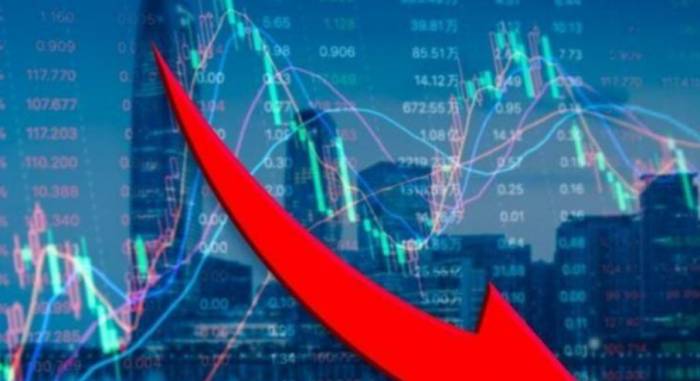Tech Stocks Wreck Top Hedge Funds, Losses in Billions Before This Week's Plunge
Tech stocks that made hedge funds a fortune last year have cost them hundreds of millions of dollars in the past month.
Media reports suggest that the popular tech stocks, which caused a market crash due to heavy buying, have led to some of the world's leading equity hedge funds losing hundreds of millions of dollars in the stock market downturn in mid-July. Insiders reveal that among these funds, the most severely impacted are Glen Kacher's Light Street Capital Management, Bill Ackman's Pershing Square Capital Management, and Philippe Laffont's Coatue Management.
Specifically, in July, Light Street's hedge fund reported a loss of 9.2%, with Pershing, which only had 13 long positions, earning -4.7%, Coatue's fund yield was -3.6%, Tiger Global Management's loss was 1.9%, and Viking Global Investors, which had fewer tech investments than its peers, had a yield of -0.1%.
However, since the beginning of this year, the aforementioned funds have maintained positive returns, with Light Street Fund's yield reaching 40.3% this year, Pershing at 0.7%, Coatue at 5.3%, Tiger Global at 10.7%, and Viking Global at 8.1%.
Advertisement
None of the above returns include the painful performance of the global stock market crash on Monday. On Monday, the US stock index recorded the largest daily drop in nearly two years, with the Nasdaq Composite once falling more than 6% during the session, closing down more than 3%, further deepening into a technical correction, the S&P 500 once fell more than 4%, close to a technical correction, the Dow Jones closed down more than a thousand points, Apple closed down nearly 5%, the largest single-day drop since September 2022, Nvidia once fell more than 15%, then closed down more than 6% after wiping out more than half of the drop. The "fear index" VIX, which measures the volatility of US stocks, once surged 181% to 65.73 at the beginning of Monday's trading, the highest since the early stages of the COVID-19 pandemic in March 2020, and closed up about 40.3%.
In the first three trading days of August up to Monday, the Nasdaq 100 Index fell 7.6%, the worst single-month start since 2008. The Bloomberg Magnificent 7 Total Return Index, which tracks an equal-weighted stock index of the seven US giants - Microsoft, Apple, Nvidia, Google parent Alphabet, Amazon, Facebook parent Meta, and Tesla, fell about 9% in three days. According to PivotalPath's proprietary model, a 9% drop means that hedge funds in the technology, media, and telecommunications sectors managing more than $1 billion in funds could lose up to 4%.
On Tuesday, US stocks rebounded, with the S&P and Nasdaq Composite once rising more than 2% during the session, closing up about 1%, with the Dow Jones, which rose more than 700 points during the session, closing up nearly 300 points, up less than 0.8%. VIX closed down more than 28%.
Jon Caplis, founder of hedge fund research firm PivotalPath, said that there have been "omens" of this week's crash in the past few months. He said: "Funds have been net sellers of blue-chip tech stocks. We have also seen many clients and funds express concerns about overinvestment in the US and its highly concentrated stock market, where the fate of a few participants could change the entire market."
Among the major funds, Jim Simons' Renaissance Technologies and David Einhorn's Greenlight Capital performed relatively best, with Renaissance Institutional Diversified Alpha and Greenlight's monthly returns at 4.2% and 2.3%, respectively, and year-to-date returns at 14.5% and 11%, respectively.
Greenlight is not a stock fund; it is a multi-strategy fund. These funds, which trade a variety of assets, have performed relatively well in the recent stock market crash, with less than 1% profit and loss in July, but stock selling has also affected their returns, and they usually have a monthly return of at least 1%.

Leave A Commnet
Email address will not be published. Required fields are marked *